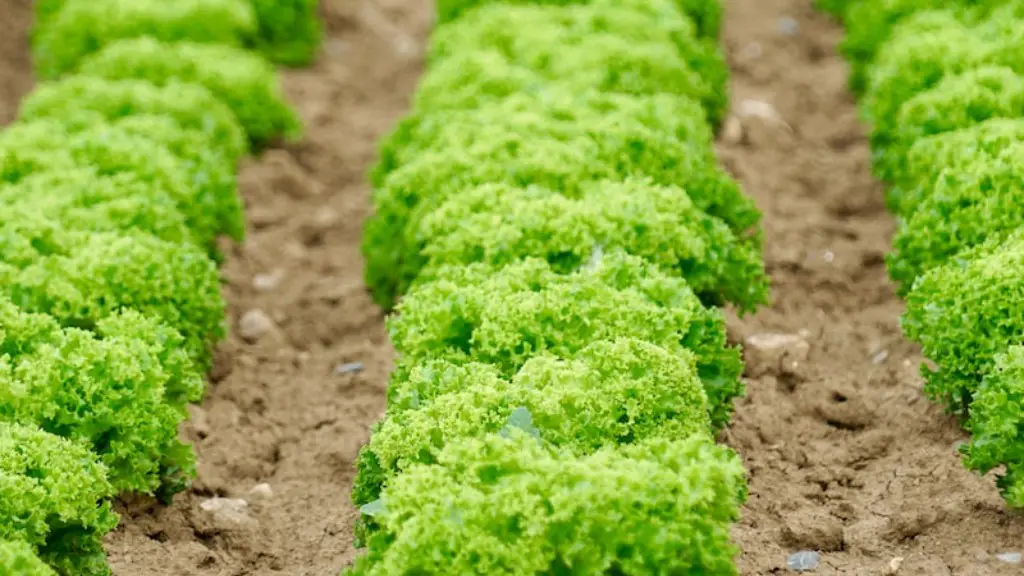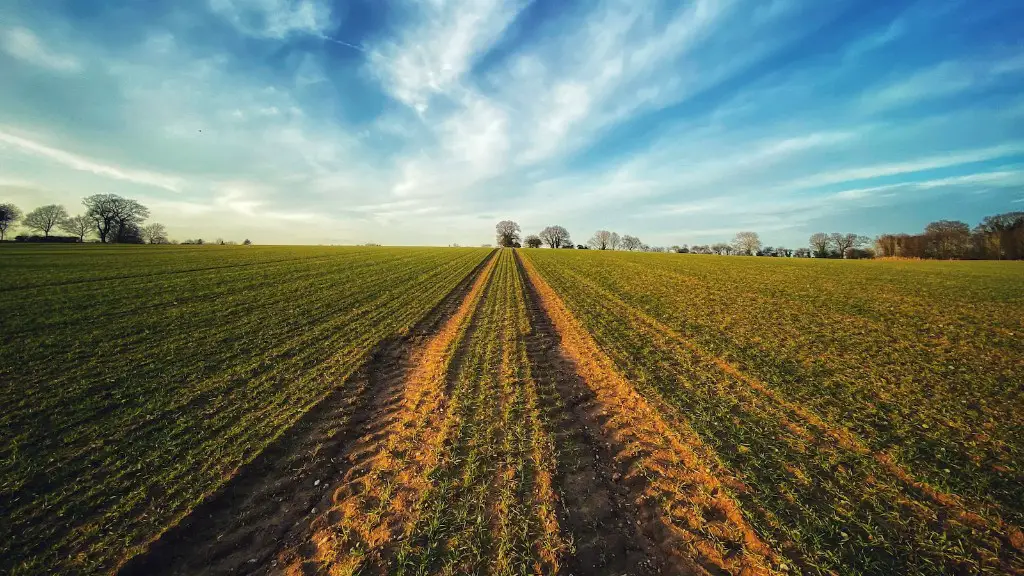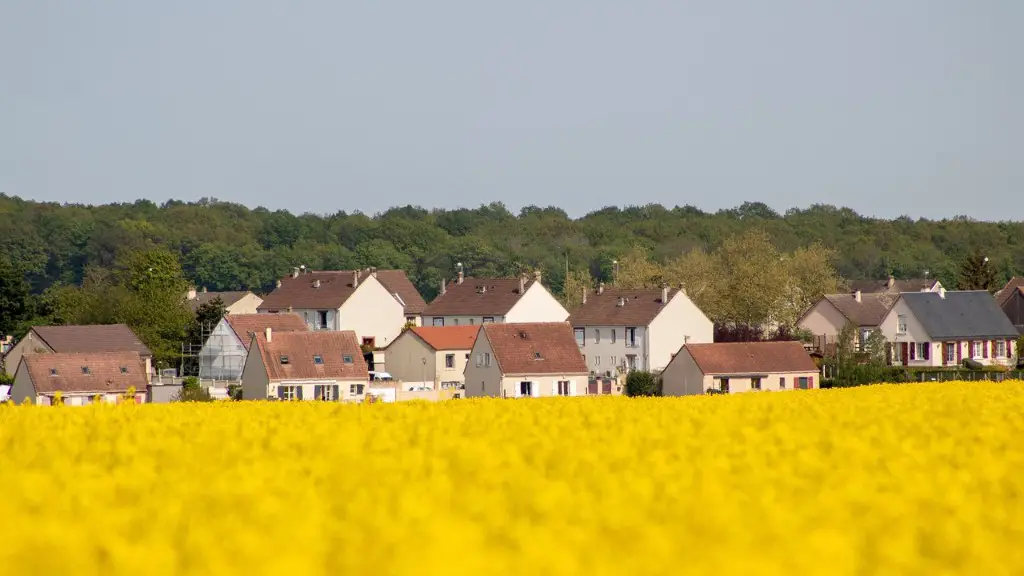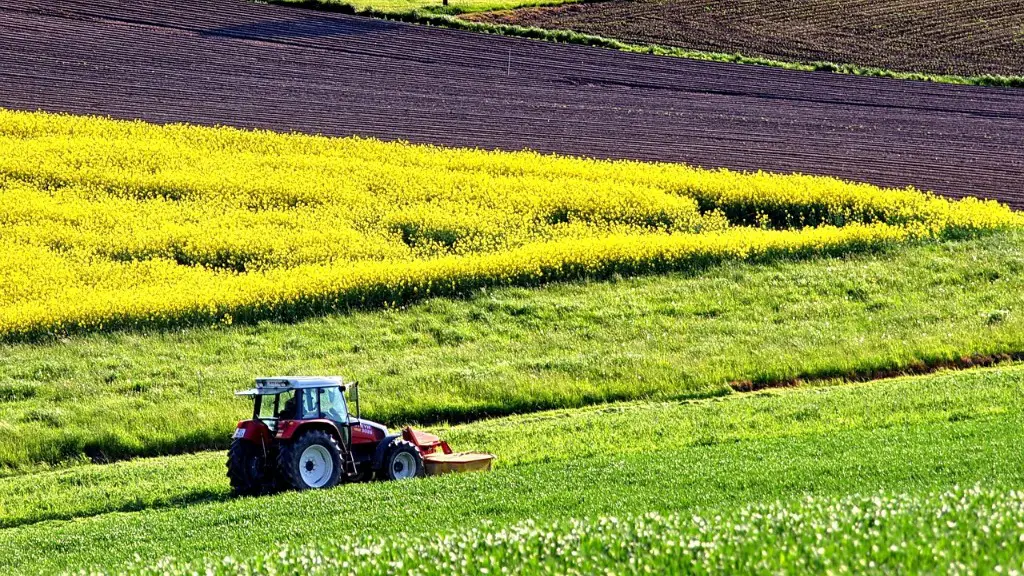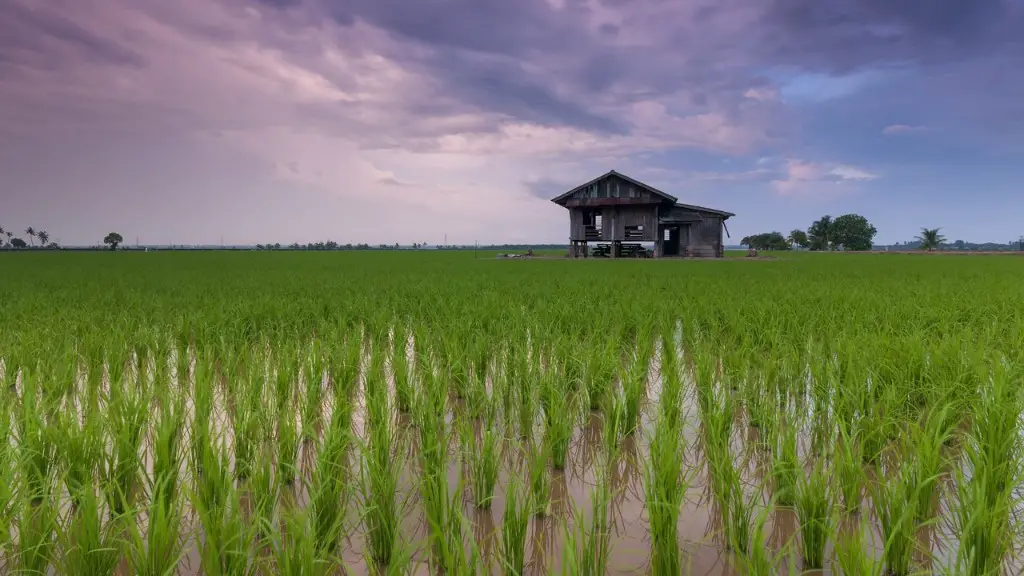As the organic movement grows, so does the demand for sustainable agriculture. But what exactly is sustainable agriculture? And does it include the use of pesticides?
No, sustainable agriculture does not use pesticides. Sustainable agriculture is an approach to farming that seeks to minimize the negative environmental impact of agriculture, while still producing the food and fiber that we need.
Does sustainable farming mean no pesticides?
Sustainable farming is a type of agriculture that focuses on producing food in a way that is environmentally friendly and doesn’t harm the natural ecosystems. Sustainable farming practices include using natural pest control methods, rotating crops, and using cover crops. Sustainable farming is a great way to produce food in a way that is both environmentally friendly and doesn’t damage the natural world.
Pesticides are an important tool for farmers to produce food and feed sustainably. However, if used improperly, they can present risks to human and animal health and the environment. It is important to read and follow the instructions on the pesticide label to ensure safe and effective use.
What is used in sustainable agriculture
Crop rotation is the practice of growing a series of dissimilar or different crops in the same area in sequential seasons. Crop rotation can improve soil fertility, as well as control pests and diseases.
Intercropping is a form of polyculture, where two or more crops are grown in close proximity. The most common form of intercropping in Europe is known as strip cropping, where crops are grown in alternating strips.
Multi-year crop rotations often include a series of different crops, grown in sequence over a number of years. This can help to improve soil fertility and reduce the risk of pests and diseases.
CA and IPM practices can help increase yields while minimizing the use of chemical pesticides. CA involves practices such as no-tillage, crop rotation, and the use of cover crops to improve soil health and reduce erosion. IPM involves the use of pest-resistant crops, biological controls, and other management practices to reduce crop losses from pests.
What are two 2 disadvantages of sustainable farming?
There are a few disadvantages to sustainable farming:
1. Limited land use: The limited use of land, which makes it unsuitable for mass production, is one of the significant drawbacks of sustainable agriculture.
2. Labor-intensive: Sustainable farming is often more labor-intensive than traditional farming, as it often relies on manual labor rather than machinery.
3. Shorter shelf life: Sustainable foods often have shorter shelf lives than conventionally-grown foods, as they are typically not treated with chemicals to extend their shelf life.
4. Reviving soil’s fertility takes a long time: One of the goals of sustainable farming is to revive and maintain the fertility of the soil. However, this can take a long time, as the soil must be allowed to rest and regenerate itself.
There are a number of modern, high-yielding farms that use no agricultural chemicals at all. The Lundberg brothers of Chico, California have a 2000-acre organic rice farm. Some of their fields have not seen a pesticide for 15 years. Del Ackerlund farms 760 acres of corn, oats, alfalfa, and soybeans near Valley, Nebraska.
What is a sustainable alternative to using pesticides?
Biosolarization is a process that uses solar heating and microbial activity to create soil conditions that are lethal to many pests, but safe for humans. This process can be used as an alternative to conventional pesticides, which can be toxic to both humans and the environment.
Organic farmers still have to use various methods to keep pests away from their crops. Just because a fruit or vegetable is produced organically doesn’t mean that bugs and other critters will simply stay away. In fact, organic foods are just as likely to be affected by pests as non-organic foods. The key difference is that organic farmers must use approved pest control methods that are considered safe for the environment.
What are sustainable alternatives to pesticides
If you’re looking for an eco-friendly way to deter pests, try one of these DIY pesticides. Salt spray is a great way to keep slugs and spider mites at bay, while orange citrus oil can be used to repel a variety of pests. Diatomaceous earth is also an effective natural pesticide, and chrysanthemum flowers can be used to make a powerful insecticide. Neem oil and eucalyptus oil are both effective against a variety of pests, and garlic spray is a great way to keep mosquitoes and other insects away. Hot pepper wax can also be used to deter pests, and is especially effective against ants.
The basic goals of sustainable agriculture are environmental health, economic profitability, and social and economic equity. These goals are sometimes referred to as the “three legs” of the sustainability stool.
Sustainable agriculture is an approach to food production that is ecologically sound, economically viable, and socially just. It is an approach that strives to create a long-term, sustainable system that meets the needs of both people and the planet.
Sustainable agriculture is an evolving approach to food production. It is an approach that is constantly evolving as we learn more about the ecological, economic, and social systems that support it.
What are the disadvantages of sustainable agriculture?
One of the advantages of sustainable agriculture is that it is more environmentally friendly than traditional farming methods. However, one of the disadvantages is that you are unable to grow as many crops at a single time. This is because a more sustainable approach typically leads to fewer crops in one plot, so plants don’t leach nutrients out of the soil.
Organic farming focuses on using natural inputs in production, such as non-GMO seeds and organic fertilizer. Sustainable farming, on the other hand, emphasizes physical practices that protect and improve the land, such as no-tillage, cover crops, and buffer zones.
What industry uses the most pesticides
Agriculture is responsible for nearly 90 percent of all pesticides used in the United States. This includes pesticides used in industry, commercial settings, government agencies, and homes.
Pesticides are an important tool in greenhouse production in order to manage insect and mite pests, and minimize the spread of diseases. Without these inputs, it would be difficult to maintain the high aesthetic standards that consumers demand for flowers and other horticultural crops.
What type of farming uses pesticides?
Organic farming, on the other hand, relies on ecologically-based pest management and uses alternative sources of nutrients. That means things like crop rotation, cover crops, compost, and biological controls. So, when it comes to the environment, organic farming is definitely the better choice.
The dwindling availability of natural resources is a major challenge faced by the agricultural industry today. With the growing demand for food, feed, fibre and other goods and services, farms are under pressure to produce more with fewer resources. This has led to degradation of land and water resources, as well as a decline in the quality and quantity of essential inputs such as seeds, fertilizer and water. In addition, climate change is posing new challenges to agriculture, with more extreme weather events and variability in rainfall patterns. All of these factors are making it difficult for farmers to produce enough to meet the needs of a growing population.
What is the argument against sustainable agriculture
Sustainable agriculture has the potential to feed the world while also helping to preserve the environment. Industrialized agriculture has led to widespread hunger and malnutrition, and is not a sustainable long-term solution. Sustainable agriculture practices can help to improve the quality of the soil, increase food production, and reduce wastage.
There are both advantages and disadvantages to sustainable agriculture. Some of the advantages include cost reduction, control of air and water pollution and soil erosion, biodiversity, and social equality. However, there are also some downsides to sustainable agriculture, such as the fact that it can take a long time for farmers to carry out their farm operations.
Final Words
No, sustainable agriculture does not use pesticides.
No, sustainable agriculture does not use pesticides. Sustainable agriculture is an environmentally friendly approach to farming that strives to produce crops in a way that does not damage or degrade the natural environment. Sustainable farmers use a variety of techniques to achieve this goal, including rotating crops, using natural pesticides, and planting cover crops.
